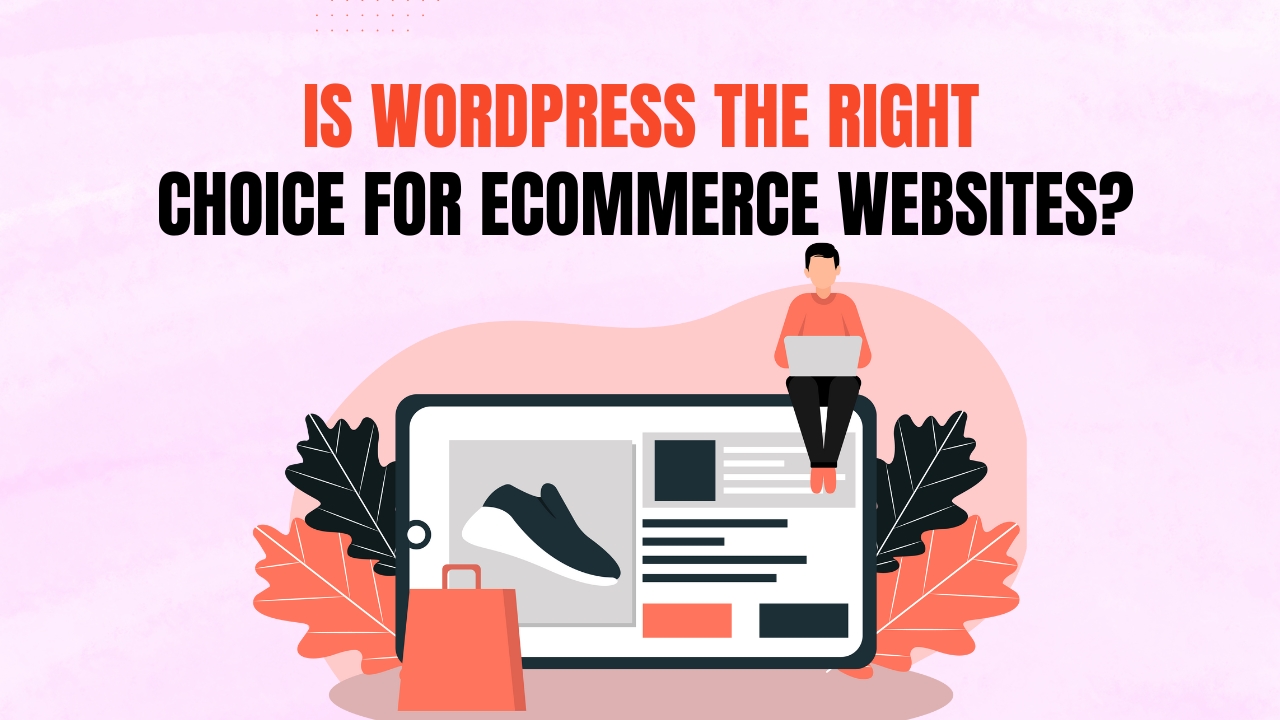Let’s be honest—when you think about building an eCommerce website, platforms like Shopify, BigCommerce, or Wix probably pop up first. But here’s the thing: WordPress, the beloved content management system that powers over 40% of the internet, is still a seriously strong contender for online stores. I’ve been creating WordPress websites for nearly a decade, and have seen it grow from a basic blog platform to an extremely robust and versatile powerhouse adept at handling eCommerce. Is WordPress the Right Choice for eCommerce Websites? Let’s look at the details of.
The Power of WordPress + WooCommerce
First things first: WordPress alone doesn’t come with eCommerce functionality. To turn it into an online store, you’ll need to install a plugin—most notably, WooCommerce. It’s the go-to eCommerce plugin for WordPress, and for good reason. It’s open-source, highly customizable, and comes with a ton of features right out of the box: product listings, shopping carts, checkout pages, inventory management, coupon codes—you name it.
But what makes WooCommerce (and by extension, WordPress) stand out is flexibility. You’re not tied to a specific design or structure. You can customize just about every element of your site. Want a homepage that looks completely different from the shop page? No problem. Need to integrate complex product options or subscriptions? You can do that too—with the right plugin or a bit of custom code.
Pros of Using WordPress for eCommerce
Let’s go over some of the biggest advantages of using WordPress for your online store.
1. Full Control
Unlike many SaaS platforms (like Shopify), WordPress is self-hosted. That means you own your website and your data. You’re not renting space—you’re building your own house.
2. Cost Flexibility
WordPress itself is free. WooCommerce is free. There are thousands of free (and paid) themes and plugins. You can start small and scale up without immediately committing to a $29/month or higher plan like you’d find on Shopify.
3. SEO-Friendly
WordPress is a favorite among SEO experts—and for good reason. With plugins like Yoast SEO or Rank Math, you can control every meta tag, heading structure, and schema markup. Plus, it’s easy to create blog content alongside your product pages, which gives you a major edge in organic rankings.
4. Customization and Design Freedom
With page builders like Elementor or Beaver Builder, and endless theme options, you can make your site look and behave exactly how you want. You’re not boxed into templates unless you want to be.
Some Caveats (Because It’s Not All Sunshine)
As much as I love WordPress, I’ll be real—it’s not the perfect fit for everyone.
1. Maintenance is on You
With great freedom comes great responsibility. You have to keep your plugins, themes, and WordPress core up to date. If something breaks, it’s on you (or your developer) to fix it. That’s not the case with hosted solutions like Shopify.
2. Security Requires Effort
WordPress is a popular target for hackers. If you don’t install security plugins, set up proper backups, and use a reliable host, you could be putting your site—and your customers’ data—at risk.
3. Not Always Plug-and-Play
While WooCommerce is fairly easy to set up, the more complex your needs are (like multi-vendor marketplaces, custom payment flows, etc.), the more likely you’ll need developer help. It’s powerful—but it can also get complicated.
Who Is WordPress eCommerce Best For?
If you:
- Want full control over your website,
- Have a decent understanding of web basics or access to a developer,
- Care deeply about design flexibility and SEO,
- Plan to scale your business over time,
…then yes, WordPress with WooCommerce is an excellent choice.
On the flip side, if you’re just starting with zero technical skills and want something that just works out of the box, a platform like Shopify or Squarespace might be a better starting point.
Real Talk: My Experience
I’ve built WooCommerce stores for everything from indie jewelry brands to international B2B wholesalers. What I love is the ability to make the site fit their business, not the other way around. But it takes a bit of technical know-how and a willingness to get your hands dirty (or hire someone who will). That said, once it’s set up right, it runs like a dream and can grow with you for years.
FAQs
Q1: Is WordPress better than Shopify for eCommerce?
It depends on your needs. WordPress offers more control and flexibility, while Shopify is easier for beginners and includes hosting, security, and updates.
Q2: Do I need a developer to build a WordPress eCommerce site?
Not necessarily. If you’re familiar with working with builders and plugins like Elementor, You can create the plugin yourself. To add more advanced options or customizations, development experts can aid.
Q3: Is WooCommerce free?
Yes, WooCommerce is free to use, but you may want to invest in premium plugins or a paid theme depending on your needs.
Q4: Is WordPress safe for online stores?
It can be very secure if you use proper hosting, install security plugins like Wordfence, and keep everything updated regularly.
Q5: Can WordPress handle large eCommerce stores?
Absolutely. Many large-scale businesses use WooCommerce. With the right hosting and optimization, it scales well.
Conclusion:
Most of the time, yes. WordPress, when combined with WooCommerce, gives you an unbeatable combination of adaptability, scalability and value for money. This is ideal for entrepreneurs who desire full control as well as the capability to completely personalize their website.
But it’s not for everyone. If you’re looking for a set-it-and-forget-it type of store with minimal maintenance, you may find more peace of mind with an all-in-one hosted solution. At the end of the day, the best platform is the one that aligns with your business goals, resources, and technical comfort level.

